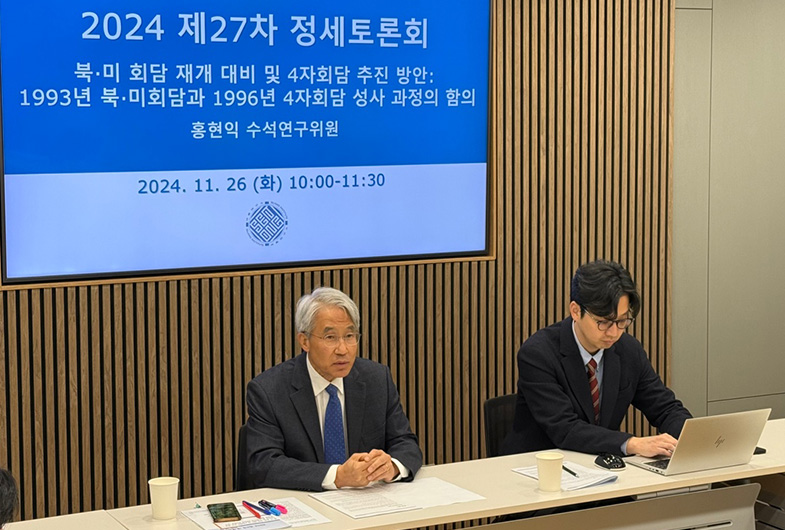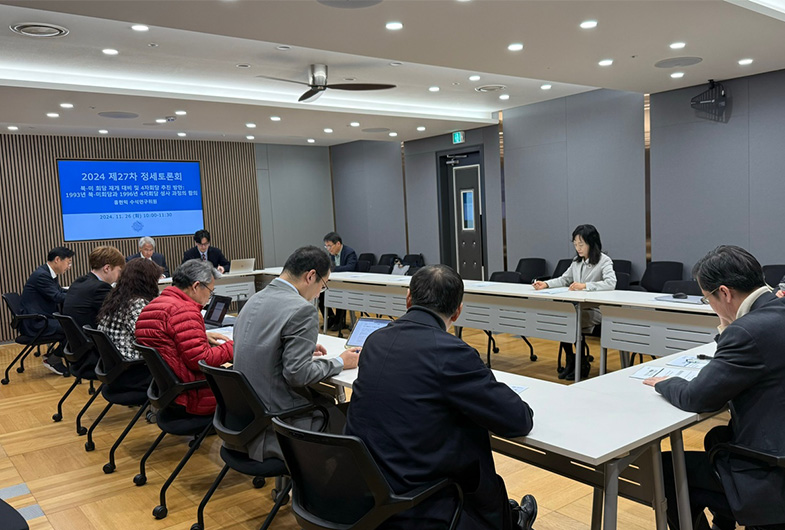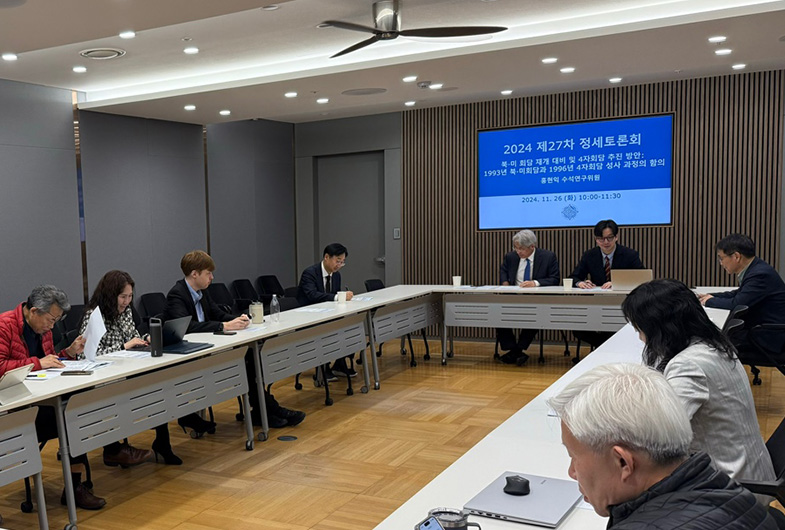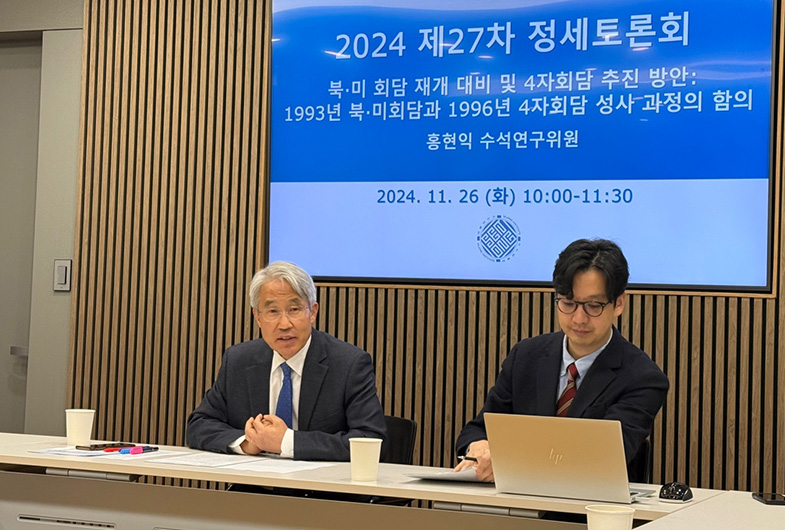On November 26th, Principal Fellow Hyunik Hong presented "Preparations for the Resumption of North-U.S. Talks and the Promotion of a Four-Party Talks Framework: Implications of the 1993 North-U.S. Talks and the Process Leading to the Success of the 1996 Four-Party Talks" at the 26th Colloquium.
The discussion was moderated by Sung-won Lee, Director of the Center for Security Strategy.
The current security situation on the Korean Peninsula is at its worst, with the potential for an accidental conflict between North and South Korea at any time. There is a lack of escalation-prevention mechanisms or willingness to de-escalate, creating a scenario where a second Korean War could break out without much surprise. The standoff between the democratic and authoritarian blocs could easily escalate into military conflict on the Peninsula, making this the most dangerous security situation in recent times.
Due to the Yoon Administration's focus on U.S.-Japan-centered diplomacy, South-North relations, and the relationship with China and Russia have worsened, contributing to the emergence of a new Cold War structure, leading to an imminent risk of war. The growing mistrust and hostility between the two Koreas, extreme confrontational intentions, and mutual provocations such as the sending of balloons from North Korea and propaganda leaflets from South Korea, increase the risk of a local conflict potentially escalating into a full-scale war. Therefore, dialogue with North Korea is necessary as a breakthrough to ease tensions.
Dialogue with North Korea should fundamentally be based on the principle of direct talks between the two Koreas. Historically, former South Korean governments have made efforts to alleviate tensions on the Korean Peninsula and maintain peace through inter-Korean dialogue. However, since South Korea does not have operational control over its forces and lacks nuclear capabilities, North Korea has consistently insisted on negotiating military security issues, particularly the nuclear issue, with the United States rather than with South Korea.
With inter-Korean dialogue difficult to resume, North Korea-U.S. negotiations or multilateral talks have been proposed as alternatives. A hardline policy toward North Korea would be effective if North Korea were directly responsible for provocations, as seen in the 1976 Panmunjom axe murder incident or the 2015 landmine incident. However, since North Korea has not carried out direct provocations against South Korea recently, it would be excessive to adopt a hardline policy toward North Korea without a clear provocation.
The Trump administration’s foreign policy priorities are likely to be Ukraine, Israel, Taiwan, and then North Korea. Even if Trump were to be re-elected, it is unlikely that North Korea-U.S. talks would resume immediately. However, given Trump's prior close relationship with Kim Jong-un, it is also possible that North Korea-U.S. relations could resume sooner than expected, especially with Trump's strong policy leadership in a second term. In this situation, it is essential to prepare for or resume inter-Korean dialogue in advance, and to closely coordinate with the U.S.-South Korea alliance to ensure that South Korea’s national interests are reflected in North Korea-U.S. talks.



